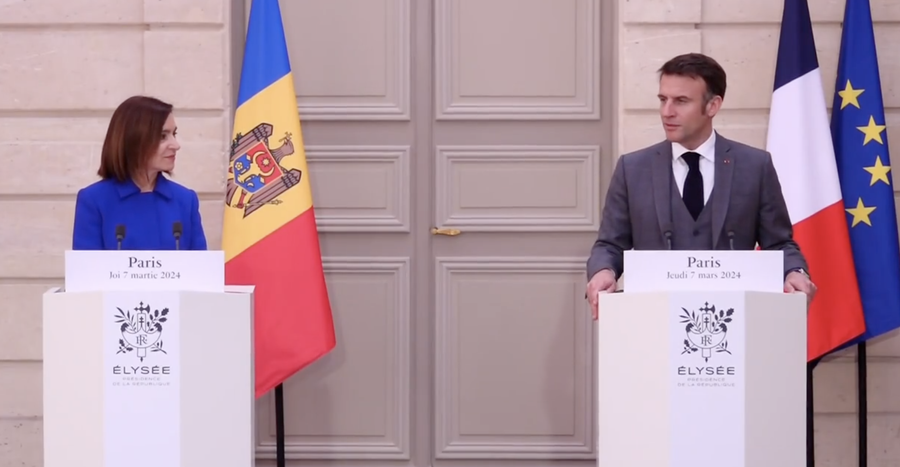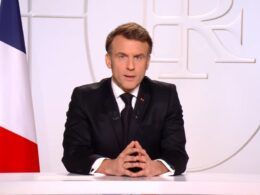On 7 March, Moldova's President Maia Sandu signed a key defense agreement with France, marking a significant step in bolstering the country's security amid growing concerns over Russian aggression. The deal, inked in Paris with her French counterpart Emmanuel Macron, aims to enhance bilateral defense cooperation and collaboration between the two nations.
After signing the document, President Sandu warned that Moscow would not stop threatening the rest of Europe if it wins in Ukraine.
"If the aggressor is not stopped, he will continue to advance, and the front line will be getting closer. Closer to us. Closer to you," Sandu said, according to the RFE/RL's Ukrainian Service.
French President Emmanuel Macron pledged unwavering support to Moldova, one of Europe's poorest countries, against the backdrop of Moscow's threats:
"France restates its unwavering support for the independence, sovereignty and territorial integrity of the Republic of Moldova within its internationally recognised borders," the French President said in a joint statement with his Moldovan counterpart.
Two years after Russia's invasion of Ukraine, Moldova is grappling with "various challenges arising from the conflict at its borders," according to the statement. A primary concern is the pro-Russian separatist region of Transnistria, where officials recently sought "protection" from Moscow. The two presidents expressed growing worries that this territory might become a new focal point in the conflict, as Moldova contends with escalating hybrid attacks, according to RFI.
The defense agreement builds on a preliminary accord reached in September, focusing on military training, regular defense consultations, and intelligence sharing.
Macron and Sandu stated that Paris fully supports Moldova's reforms aimed at eventually joining the European Union, ahead of a referendum in Moldova later this year, as per AFP.
Moldova's concerns
In a separate statement, Sandu said:
"France has stood by us, offering us support during the last two years of turmoil caused by Russia's actions. France stands with us as we move forward on our path to joining the European Union."
Before she visited France, President Sandu expressed concerns that Moscow intends to undermine Moldova's stability and derail its integration into the European Union. On 5 March, the Moldovan Intelligence and Security Service (SIS) issued a warning about Russia's plans to destabilize the country, which seeks to shed Moscow's longstanding influence and join the EU.
Under President Sandu's pro-Western leadership, Moldova has firmly set its course towards European integration, condemning Russia's invasion of Ukraine. The country was invited to start EU membership negotiations in 2022 and is set to hold a national referendum on joining the bloc this year.
Read also:
- ISW warns of escalating Russian hybrid operations in Moldova ahead of EU accession talks
- France to expand Ukrainian military training with air and naval programs
- Military: Russian troops stationed in Modova's Transnistria pose no threat
- Moldova’s breakaway Transnistria region seeks Russian protection with claims of economic blockade
- Moldova discovers Russian drone debris near Ukrainian border
- Putin dusts off Ukraine playbook for Moldova
- Moldova accuses Russian troops in Transnistria of violations





